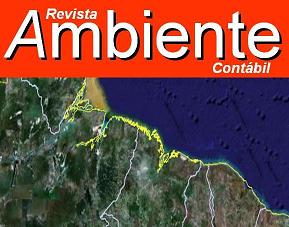CREATION OF THE FISCAL COUNCILS: LEARNING FROM THE INTERNATIONAL EXPERIENCE
DOI:
https://doi.org/10.21680/2176-9036.2018v10n1ID12343Keywords:
Brazil. Fiscal Council. International experience. Public Accounting.Abstract
The present study aimed to know the international experience on the creation of Fiscal Councils (FC) to subsidize the discussions on the subject in Brazil. To address the research question, initially was analyzed the Brazilian experience, through the bills in the Chamber of Deputies and the Federal Senate, from 2000 to 2017. Then, were observed the legal precepts that guarantee the independence of a FC from the perspective of the International Monetary Fund (IMF), and analyzed the international experiences regarding the creation of FCs by the Country Governments, highlighting the beginning of activities, the institutional models observed and how these councils were structured. The findings of the study show that the first FC was created by the Netherlands in 1945, followed by Japan (1950), Denmark (1962) and Germany (1963), there are, currently, 29 FC in the world. As for the institutional models, there is preference for the autonomous and associated to the Legislative Power (20 of the 29 countries analyzed). About the composition, the number of members does not vary, having at least two, and at most 13 members in each body, with professional experiences in the areas of Fiscal Policy, Economy, Audit, Financial Markets and Public Finance.
Downloads
References
ABRUCIO, F. L.; LOUREIRO, M. R. G. Finanças públicas, democracia e instrumentos de accountability (FGV-EAESP/GVPESQUISA: Relatório de Pesquisa nº 31, 2004.
AFONSO, J.R.; RIBEIRO, L. Um Conselho para Responsabilidade Fiscal. Revista Conjuntura Econômica pp.20-22 (Portal IBRE - FGV), 2016.
AGÊNCIA SENADO. Senado aprova regulamentação do Conselho de Gestão Fiscal. Disponível em <http://www12.senado.leg.br/noticias/materias/2015/12/01/senado-aprova-regulamentacao-do-conselho-de-gestao-fiscal> . Acesso em janeiro de 2017.
AGÊNCIA SENADO. Diretor-executivo diz que objetivo central da IFI é ‘colocar luz sobre contas públicas’. Disponível em <https://www12.senado.leg.br/noticias/materias/2016/12/09/diretor-executivo-diz-que-objetivo-central-da-ifi-e-colocar-luz-sobre-contas-publicas/tablet>. Acesso em janeiro de 2017.
AGÊNCIA SENADO. Senado Aprova IFI. Disponível em <http://www12.senado.leg.br/noticias/materias/2016/03/23/senado-aprova-instituicao-fiscal-independente>. Acesso em janeiro de 2017.
BIJOS, P. R. S. Instituições Fiscais Independentes: subsídios para a implantação de um imperativo fiscal no país (Senado Federal, Consultoria de Orçamentos, Fiscalização e Controle), 2015.
BRASIL. Lei complementar nº. 101, de 4 de maio de 2000. Dispõe sobre normas de finanças públicas voltadas para a responsabilidade na gestão fiscal e dá outras providências. Diário Oficial [da] República Federativa do Brasil. Brasília. 2000, <http://www.planalto.gov.br/ccivil_03/leis/LCP/Lcp101.htm>.
DEBRUN, X.; KINDA, T. Strengthening Post-Crisis Fiscal Credibility: Fiscal Councils on the Rise—A New Dataset (Washington, DC: International Monetary Fund), 2014.
DEBRUN, X.; KINDA, T. , CURRISTINE, T., EYRAUD , L., HARRIS, J., SEIWALD, J., DACHEVA, P. KREKEL, C. , PODSTAWSKI, M., WANG, R. (2013). The functions and impact of fiscal councils (Washington, DC: International Monetary Fund).
FUNDO MONETÁRIO INTERNACIONAL. Acordo Constitutivo do Fundo Monetário Internacional, 1946.
MENDES, M. O que são “Instituições Fiscais Independentes”? Disponível em <http://www.brasil-economia-governo.org.br/2014/05/05/o-que-sao-instituicoes-fiscais-independentes/>. Acesso em janeiro de 2017.
OECD Organization For Economic Co-operations and Development. Recommendation of the Council on Principles for Independent Fiscal Institutions (OECD Network of Parliamentary Budget Officials and Independent Fiscal Institutions), 2014.
SILVA, Lino Martins da. A Normatização da Contabilidade Governamental: Fatores Críticos que Impactam as Informações dadas aos Usuários das Informações Contábeis. REPeC - Revista de Educação e Pesquisa em Contabilidade, Brasília, v. 1, n. 1, art. 3, p. 25-38, jan/abr. 2007.
Downloads
Published
How to Cite
Issue
Section
License
Authors who publish in this magazine agree with the following terms:
Authors keep the copyrights and concede the right of its first publication to the magazine. The work piece must be simultaneously licensed on the Creative Commons Attribution Licence which allows the paper sharing, and preserves both the author identity and the right of first publication to this magazine.
Authors are authorized to assume additional contracts separately, to not-exclusively distribution of the paper version published in this magazine (e.g.: publish in institutional repository or as a book chapter), with the author identity recognition and its first publication in this magazine.
Authors are permitted and stimulated to publish and distribute their papers online (e.g.: in institutional repository or on their personal webpage), considering it can generate productive alterations, as well as increase the impact and the quotations of the published paper.
Creative Commons - Atribuição-NãoComercial-SemDerivações 4.0 Internacional.


 Português (Brasil)
Português (Brasil) English
English Español (España)
Español (España)


